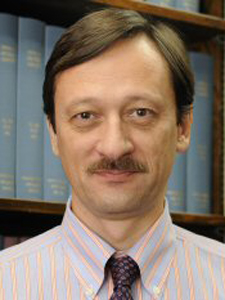Program Information
Point and Counter Point Debate: Brachytherapy Is Better Than External Beam Therapy for Partial Breast Irradiation
D Todor1*, S Becker2*, (1) Virginia Commonwealth University, Richmond, VA, (2) NYU Medical Center, New York, NY
TU-F-500-1 Tuesday 3:00PM - 3:50PM Room: 500 BallroomPartial breast irradiation (PBI) by either brachytherapy or external beam (EB) therapy is frequently used for the treatment of certain populations of breast cancer patients. The claim that brachytherapy is better than EB for PBI is the Proposition debated here.
Advantages claimed for brachytherapy for PBI include:
• brachytherapy is associated with smaller treatment volumes, lower integral doses, and smaller doses/fraction to normal tissues
• dosimetric parameters which affect toxicity have been thoroughly investigated for brachytherapy
• brachytherapy is supported by over ten years of study with excellent local control and minimal toxicity
• with brachytherapy, evidence-based treatment planning guidelines have been published.
Advantages claimed for EB therapy include:
• all clinics have linacs, whereas not all have an HDR unit or LDR facilities
• brachytherapy requires specific skills and training that not all radiation oncologists have
• brachytherapy is an invasive procedure
• a brachytherapy program requires greater effort and staff to commission and maintain
• brachytherapy is performed BID, which is inconvenient to patients
• not all patients are appropriate for brachytherapy treatment
Arguing FOR the Proposition is Dorin Todor, Ph.D. Dr. Todor obtained his Ph.D. in Physics from Old Dominion University, Norfolk, VA followed by a one-year Research Fellowship at Memorial Sloan Kettering Cancer Center, New York. Since then he has worked at the Virginia Commonwealth University where he is currently an Associate Professor. His major research interests include real-time 3D HDR source position detection and tracking, and dual fusion imaging for intraoperative planning, execution and evaluation of brachytherapy implants.
Arguing against the Proposition is Stewart Becker, Ph.D. Dr. Becker obtained his M.S. and Ph.D. degrees in Medical Physics from the University of Wisconsin, Madison after which he moved to the Department of Radiation Oncology, New York University Medical Center, where he is currently Senior Physicist and Assistant Professor. His major research interests include image-guided radiotherapy, and whole and accelerated partial breast radiotherapy.
Learning Objectives
1. To understand why brachytherapy might be better than external beam therapy for partial breast irradiation
2. To understand why external beam therapy might be better than brachytherapy for partial breast irradiation
3. To know how brachytherapy and external beam therapy differ when applied to partial breast irradiation
Contact Email:




